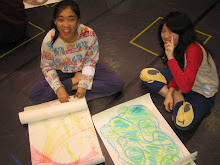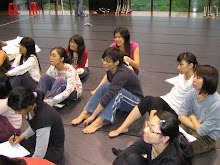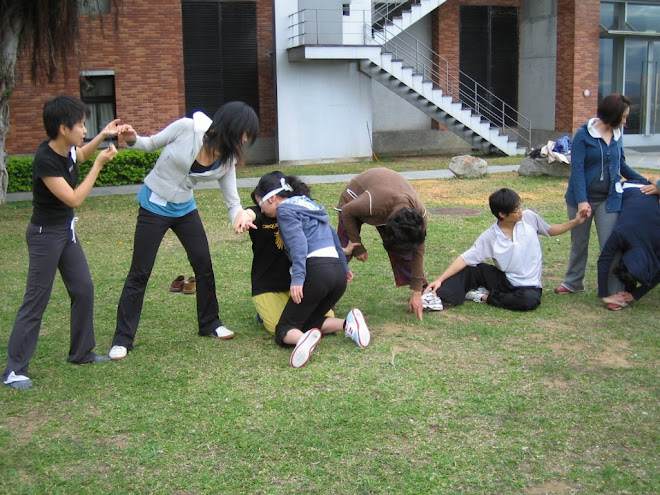It was great seeing and playing with you all 10 days ago. I am looking forward to more inspiring group work this Saturday.
I wanted to write something interesting about a very powerful exercise we did in the last session, the Crossing exercise (which is usually referred to as First Crossing because there's a "second" one, too), but I am at work, stuck on my computer, and can't really think too straight...
The Crossing is a very powerful exercise, and one that can be very useful in putting us in touch with our physical sensations and emotions (which, one could argue, are both made of the same stuff, vibrations). We'll have a chance to explore it more in the next sessions. It can be very useful to creating choreography and movement that is meaningful and authentic/real, as opposed to simply arbitrary.
For now I'll just share with you another quote, taken by one of Jerzy Grotowski's (the great Polish director) writings. He is talking about theater and acting here, but I feel this all still applies to what we're attempting to do.
The rhythm of life in modern civilization is characterized by pace, tension, a feeling of doom, the wish to hide our personal motives and the assumption of a variety of roles and masks in life (different ones with our family, at work, amongst friends or in community life, etc.-). We like to be “scientific”, by which we mean discursive and cerebral, since this attitude is dictated by the course of civilization. But we also want to pay tribute to our biological selves, to what we might call physiological pleasures. We do not want to be restricted in this sphere. Therefore we play a double game of intellect and instinct, thought and emotion; we try to divide ourselves artificially into body and soul. When we try to liberate ourselves from it all we start to shout and stamp, we convulse to the rhythm of music. In our search for liberation we reach biological chaos. We suffer most from a lack of totality, throwing ourselves away, squandering ourselves.
Theatre—through the actor’s technique, his art in which the living organism strives for higher motives—provides an opportunity for what could be called integration, the discarding of masks, the revealing of the real substance: a totality of physical and mental reactions. This opportunity must be treated in a disciplined manner, with a full awareness of the responsibilities it involves. Here we can see the theatre’s therapeutic function for people in our present day civilization.
Thank you all, and thank you SheenRu, for giving us a place (literal and figurative) to explore this opportunity for integration.
Love you all.







No comments:
Post a Comment